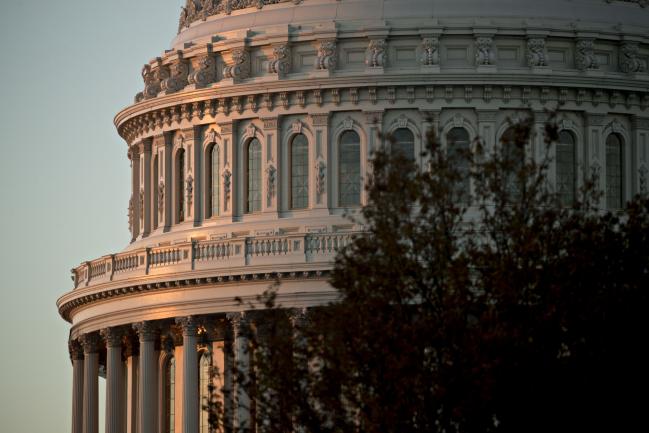(Bloomberg) -- A group of conservative economists appear to be backing off their claim, embraced this week by Treasury Secretary Steven Mnuchin, that Congress’s proposed corporate tax cut would lead to 3 percent economic growth within a decade.
The nine conservative economists, in a letter Thursday to two Harvard economists who challenged the finding, said their estimate wasn’t intended to include a time frame for when such growth would occur.
The Senate plans to vote Friday on its massive tax-cut plan, which -- like a separate version passed by the House -- would cut the top corporate income tax rate to 20 percent from a maximum 35 percent. The nine economists’ original Nov. 25 letter estimated that under the House and Senate proposals, "the gain in the long-run level of GDP would be just over 3 percent, or 0.3 percent per year for a decade."
The Treasury Department posted the letter on its website Monday with a statement from Mnuchin that said, “We are very encouraged that findings by this preeminent group of economists supports our strong belief that the tax reform proposals before Congress will lead to substantial economic growth."
Harvard economists Larry Summers and Jason Furman, who both served in the Obama administration, challenged the nine economists’ claim, which they also made in a commentary published Sunday by the Wall Street Journal.
The conservative economists wrote to Summers and Furman on Thursday, saying the 3 percent growth assertion "did not offer claims about the speed of adjustment to a long-run result."
‘Backing Off’
Summers and Furman said in a response published Thursday by the Washington Post that they appreciated "that you are backing off the statement in your original letter" that 3 percent growth would occur over a decade.
An analysis released Thursday by the Joint Committee on Taxation, Congress’s official scorekeeper, said the Senate tax bill would boost gross domestic product by only about 0.8 percent over the next 10 years -- less than one-third of the nine economists’ prediction. That growth wouldn’t cover the tax plan’s loss of government revenue, leaving a shortfall of roughly $1 trillion over the decade, the JCT said.
In a blog post on Friday, Summers and Furman wrote that the economists "do not take a stance on how long it takes to get to your 3 percent of GDP effect so, in fact, your estimates may even be consistent with the JCT’s first decade estimates."
Treasury officials Marisol Garibay and Jason Chung didn’t immediately respond Friday to requests for comment.
The nine conservative economists are largely from the Reagan and Bush administrations. They are Robert J. Barro; Michael J. Boskin; John Cogan; Douglas Holtz-Eakin; Glenn Hubbard; Lawrence B. Lindsey; Harvey S. Rosen; George P. Shultz, and John B. Taylor.
Holtz-Eakin, president of the American Action Forum and a former Congressional Budget Office director during the George W. Bush administration, didn’t immediately respond to requests for comment.
(Corrects story published Dec. 1 to reflect that the American Action Forum is not a lobbying organization.)
